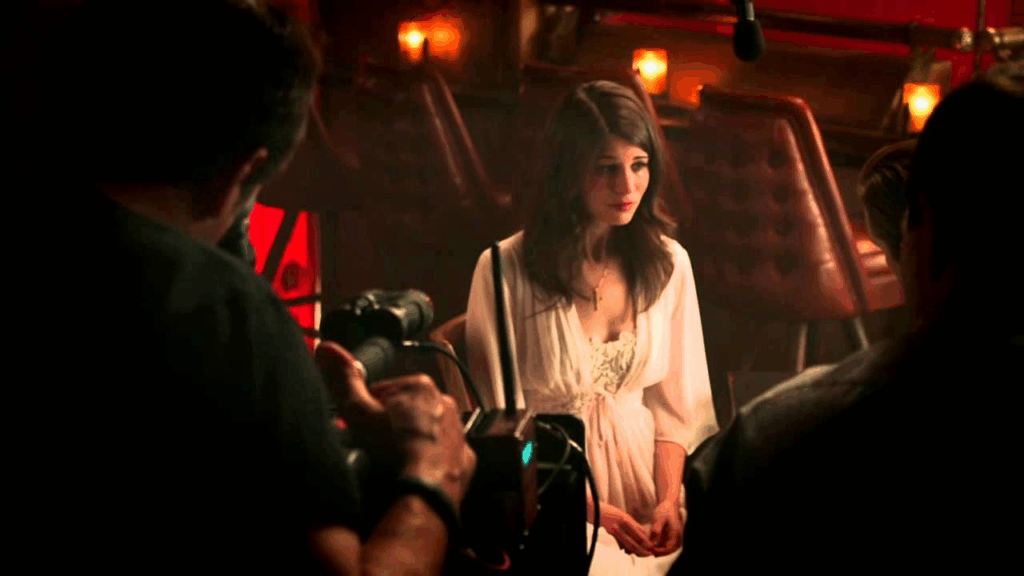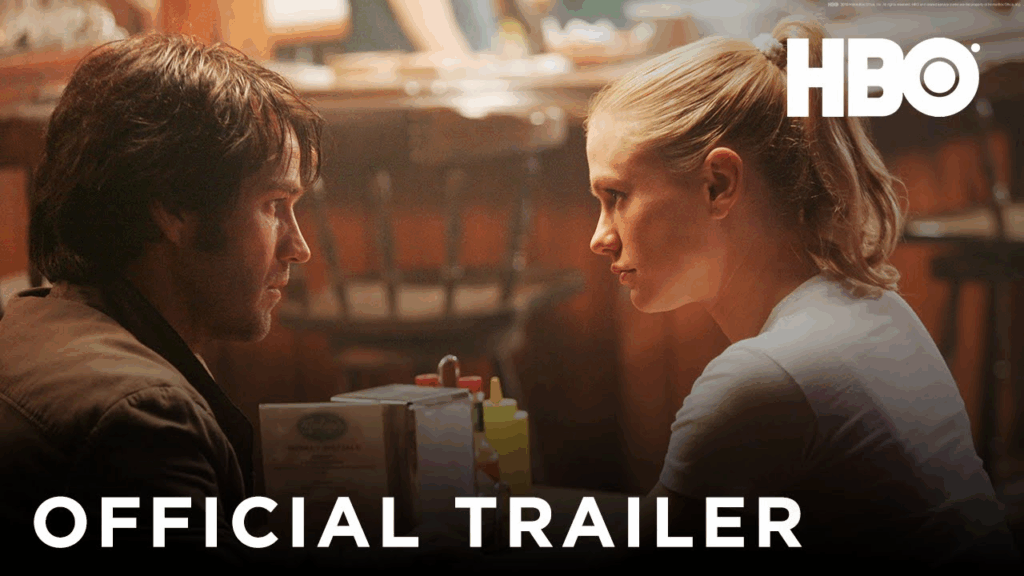True Blood (1989)

Introducing True Blood (1989): A Gritty Action-Drama of Brotherhood and Revenge
Overview
True Blood (1989) is an American action-drama film that captures the raw energy of late-1980s urban thrillers, blending themes of brotherhood, betrayal, and redemption against the gritty backdrop of Brooklyn’s gangland. Written and directed by Frank Kerr, the film stars Jeff Fahey as Ray Trueblood, a former gang member framed for murder, alongside Chad Lowe as his estranged younger brother Donny, and Sherilyn Fenn as a romantic interest. Released on April 28, 1989, with a runtime of 100 minutes and an R rating for violence, language, and mature themes, True Blood is a low-budget gem that resonates with fans of 1980s B-movies and street dramas. Produced by Fries Entertainment and distributed by New World Pictures, the film grossed modestly but has since earned a cult following for its intense performances, particularly Billy Drago’s chilling portrayal of the villainous Billy “Spider” Masters, and its nostalgic portrayal of New York City’s underbelly. With its mix of car chases, shootouts, and emotional stakes, True Blood stands as a compelling, if underappreciated, relic of its era.

Synopsis
Set in Brooklyn, New York, True Blood follows Ray Trueblood (Jeff Fahey), a tough street gang member who is wrongfully accused of murdering a police officer during a gangland brawl orchestrated by his rival, Billy “Spider” Masters (Billy Drago). To escape the law, Ray flees the city, abandoning his younger brother Donny (Chad Lowe) and enlisting in the U.S. Marines. Ten years later, Ray returns as a decorated veteran, hoping to reconnect with Donny and start anew. To his dismay, he discovers that Donny, now 18, has fallen under Spider’s influence, joining his gang and harboring resentment toward Ray for his abandonment.
As Ray navigates a neighborhood still plagued by violence and corruption, he’s hunted by both Spider’s gang, who seek revenge, and the police, led by Detectives Joseph Hanley (James Tolkan) and Charlie Gates (Ken Foree), who still believe Ray is guilty of the decade-old murder. Ray’s efforts to save Donny are complicated by his budding romance with Jennifer (Sherilyn Fenn), a local woman with her own ties to the gang world, and by Spider’s escalating brutality. The film builds to a tense climax where Ray must rely on his military training to confront Spider, clear his name, and rescue Donny from a life of crime. The narrative weaves action-packed sequences—car chases, fistfights, and explosions—with emotional moments of brotherly reconciliation, culminating in a showdown that tests Ray’s resolve and Donny’s loyalty. The tagline, “In the streets, blood runs true,” encapsulates the film’s focus on family ties and the violent cost of survival.

Cast and Characters
True Blood features a strong ensemble cast that elevates its by-the-numbers premise:
- Jeff Fahey as Ray Trueblood: The stoic protagonist, Ray is a former gang member turned Marine whose return to Brooklyn stirs old wounds. Fahey, known for The Lawnmower Man (1992), brings a rugged intensity to the role, though some critics noted he struggles to fully embody a gang leader’s edge.
- Chad Lowe as Donny Trueblood: Ray’s resentful younger brother, Donny’s involvement with Spider’s gang drives the emotional core of the film. Lowe, brother of Rob Lowe, delivers a raw performance, capturing Donny’s anger and vulnerability.
- Sherilyn Fenn as Jennifer: Ray’s love interest, Jennifer is a tough but compassionate woman caught in the gang world. Fenn, fresh off Twin Peaks, adds depth and allure, though her role is somewhat underdeveloped.
- Billy Drago as Billy “Spider” Masters: The scar-faced, psychotic gang leader, Spider is a standout villain. Drago, known for The Untouchables (1987), chews the scenery with menacing charisma, making Spider a memorable antagonist.
- Supporting Cast: James Tolkan (Back to the Future) plays Detective Joseph Hanley, a hard-nosed cop obsessed with catching Ray, while Ken Foree (Dawn of the Dead) is Detective Charlie Gates, his more sympathetic partner. Brodie Greer and John Capodice round out the cast as additional detectives, with minor roles adding to the gritty urban atmosphere.
Production Details

Written and directed by Frank Kerr, a lesser-known filmmaker with roots in television, True Blood was produced by Fries Entertainment, a company specializing in low-budget action films. Filming took place in Los Angeles, doubling for Brooklyn, with urban locations like warehouses, alleyways, and abandoned lots creating a gritty aesthetic. The production’s modest budget—estimated at $2–3 million—relied on practical effects for its action sequences, including real car chases and pyrotechnics, giving the film a raw, tactile feel. Cinematographer James Chressanthis used moody lighting and handheld shots to enhance the urban tension, while the score by Mark Snow (The X-Files) blended synth-heavy tracks with driving rhythms, typical of 1980s action cinema.
The screenplay draws inspiration from classic Westerns and urban dramas like The Warriors (1979), reimagining the lone hero trope in a gangland setting. Kerr included a surprising intellectual touch, with Ray quoting William Butler Yeats to woo Jennifer, a nod to his character’s hidden depth that critics found both classy and incongruous. Production challenges included tight schedules and limited resources, but the cast’s commitment—particularly Drago’s unhinged performance—elevated the material. The film’s R rating reflects its graphic violence, profanity, and brief nudity, aligning with the era’s appetite for gritty action.

Reception and Critical Response
True Blood (1989) received mixed reviews upon release, with critics praising its cast and energy but criticizing its predictable plot and clichéd dialogue. It holds no official Rotten Tomatoes score due to limited reviews, but period critiques, like the Los Angeles Times, called it a “grimly vacuous Lower East Side shoot-up” that revives Western clichés with “dead eyes and a fine drool of cliches”. On IMDb, it scores a 5.1/10 based on 447 votes, with user reviews describing it as a “hidden gem” and “accurate portrayal of gang life in NYC at the time,” though others found it “predictable” and “overwrought”. Audience reactions on Letterboxd and Reddit highlight its cult appeal, with fans enjoying its “so-bad-it’s-funny” quality and Drago’s “psycho” performance.
The film’s box office performance was modest, grossing under $1 million domestically against its low budget, reflecting its limited theatrical run. However, its release on VHS and cable TV in the 1990s broadened its audience, cementing its status as a B-movie favorite. Modern viewers on X appreciate its nostalgic 1980s vibe, with one post calling it “a time capsule of greaser gangs and bad 80s music”. Critics note its similarities to S.E. Hinton’s novels (The Outsiders), suggesting it could have been stronger with a more polished script or director like Francis Ford Coppola. Despite its flaws, the film’s raw energy and strong performances keep it alive in cult cinema circles.

Plot and Themes
True Blood is a classic 1980s action-drama that explores themes of brotherhood, redemption, and the cycle of violence in urban gang culture. Ray’s return to Brooklyn mirrors the Western archetype of the gunslinger confronting his past, with Donny’s resentment adding emotional stakes. The film examines the bonds of family, as Ray’s guilt over abandoning Donny drives his mission to save him, while Spider’s gang represents the seductive pull of power and lawlessness. Themes of justice and vengeance emerge as Ray seeks to clear his name, with the police and Spider’s gang serving as dual threats.
The film’s portrayal of gang life, while stylized, captures the gritty reality of 1980s New York, with its turf wars and economic despair. Ray’s military background adds a layer of discipline and trauma, contrasting with Donny’s youthful rebellion. The romance with Jennifer, though brief, introduces a glimmer of hope, though critics noted its rushed development. The film’s action sequences—car chases, shootouts, and brawls—serve as visceral expressions of its themes, with Spider’s scar and unhinged demeanor symbolizing the scars of urban decay. While not overtly political, True Blood reflects the era’s fascination with vigilante justice and masculine redemption.

Release and Availability
True Blood premiered on April 28, 1989, in select U.S. theaters, with a limited release typical of low-budget action films. It was later distributed on VHS by Fries Home Video and aired on cable channels like USA Network. As of 2025, the film is available for streaming on Amazon Prime Video, where it can be watched with a subscription, or rented/purchased on Apple TV. Free streaming options exist on niche platforms like Tubi or the Internet Archive, though quality may vary. The R rating, for “violence, language, and some sexual content,” makes it suitable for mature audiences. The film’s 100-minute runtime balances action and drama, though some viewers find the pacing uneven.
Marketing and Anticipation
The marketing for True Blood leaned into its action-packed premise, with posters featuring Fahey wielding a gun and Drago’s menacing glare, alongside taglines like “In the streets, blood runs true.” Trailers emphasized car chases and explosions, targeting fans of 1980s action stars like Chuck Norris or Steven Seagal. The film’s low profile limited its hype, but its cast—particularly Fenn, riding Twin Peaks buzz—drew attention. VHS covers in the 1990s played up Drago’s villainy, boosting its cult appeal. Modern fans on X and Reddit rediscover it through streaming, with posts praising its “cheesy but fun” vibe and Drago’s “top-tier psycho energy”. While not a major release, its gritty aesthetic and familiar faces generated modest anticipation.

Legacy and Cultural Impact
True Blood (1989) occupies a niche in the pantheon of 1980s B-movies, alongside films like Death Wish 3 or The Exterminator. Its cult status stems from its raw depiction of gang life, memorable villain, and nostalgic elements—greaser-style gangs, synth scores, and urban decay. Billy Drago’s performance as Spider is a highlight, with fans on IMDb and Letterboxd citing him as a standout in a crowded filmography of “psycho” roles. The film’s influence is subtle, echoing in later urban thrillers like New Jack City (1991), though it lacks their cultural weight.
Critics compare it to S.E. Hinton’s stories for its focus on troubled youth and brotherhood, but note its execution falls short of Coppola’s adaptations. Its portrayal of 1980s Brooklyn, while exaggerated, offers a time capsule of pre-gentrified New York, resonating with viewers nostalgic for the era’s gritty cinema. The film’s availability on streaming platforms has introduced it to new audiences, with X posts celebrating its “underrated” status and “solid cast”. While not a classic, True Blood endures as a fun, flawed snapshot of 1980s action cinema, appealing to fans of B-movies and urban dramas.

Conclusion
True Blood (1989) is a gritty, action-packed drama that captures the essence of late-1980s B-movie cinema, blending brotherhood, revenge, and urban violence in a compelling, if predictable, package. Directed by Frank Kerr and elevated by Jeff Fahey’s stoic hero, Chad Lowe’s emotional depth, and Billy Drago’s unhinged villainy, the film delivers raw energy and nostalgic charm. Despite mixed reviews and modest box office returns, its cult following celebrates its car chases, shootouts, and heartfelt moments of reconciliation. Whether you’re drawn to 1980s action flicks, Sherilyn Fenn’s early charisma, or Drago’s iconic menace, True Blood offers a thrilling dive into Brooklyn’s gangland that’s worth revisiting for its unpolished grit and enduring appeal.